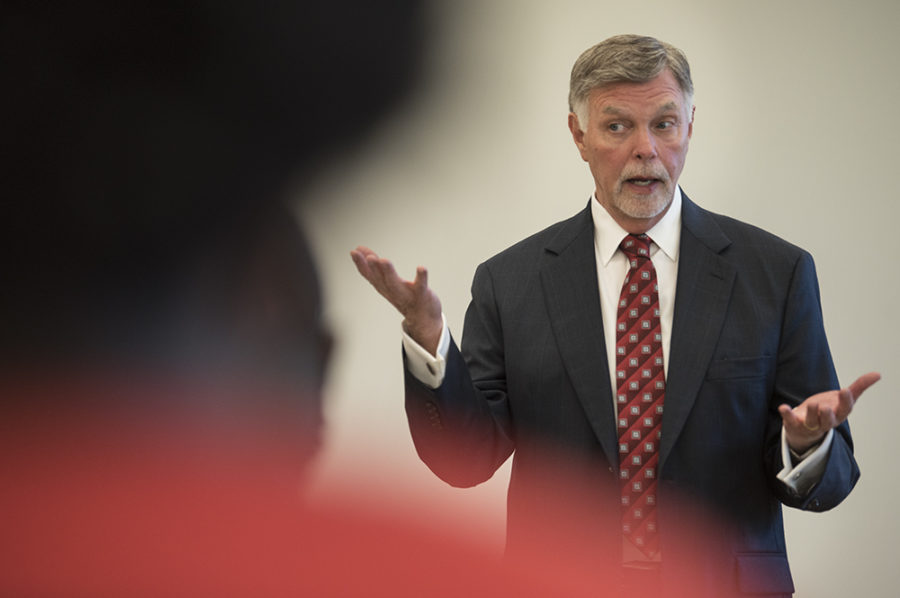Chancellor candidate wants to engage in a ‘strategic recalibration of SIU’
Chancellor candidate George Hynd addresses students Wednesday, April 19, 2017, during an open forum in the Student Services Building. (Morgan Timms | @Morgan_Timms)
April 19, 2017
George Hynd wants be part of the rebuilding process.
During a student-led forum Wednesday evening, Hynd, who is vying to become chancellor at SIU’s largest campus, said he wants to engage in a creative revisioning of the university that he called “a strategic recalibration of SIU.”
Hynd, who has been president of Oakland University in Rochester, Michigan, since 2014, described SIU’s financial troubles and shrinking enrollment as tsunamis. While they “destroy a lot of things,” he said, the waters will “eventually recede,” which he sees as an opportunity.
Advertisement
“When those resources come back on, when the state finally gets its act together and passes a budget, SIU will know what it needs to do to rebuild the kind of institution that will remain,” he said.
The student forum was part of a three-day interview process for Hynd, in which students asked him about the budget impasse, recruitment, diversity and other issues.
Budget reductions, recruitment
When asked if he was ready to make massive budget cuts and be perceived as “the bad guy” on campus, Hynd said there is no doubt the next chancellor will be forced to make tough decisions. He said some of these reductions are already occurring.
“The answer is yes, I’m prepared to do it; I’ve done it before,” Hynd said.
As a dean at Arizona State University, Hynd had to fire 25 people at once, which he described as “a pretty dark day.” However, about half of those people were later re-employed by the university, he said.
In late March, SIU President Randy Dunn announced his plan for the Carbondale campus to cut at least $30 million in spending from its $450 million budget. Shortly after the announcement, interim Chancellor Brad Colwell, who is also a finalist for the permanent position, said the changes at the university “will be challenging and painful” and “almost certainly include layoffs.”
Advertisement*
After those reductions, Hynd said, the university will need to come together to figure out “what this place is going to look like with this new reality.”
When asked about low morale, Hynd said it is not only caused by the state’s historic budget impasse, but also by the university’s declining enrollment. Over the last two decades, the Carbondale campus has seen a generally consistent decline in students. Enrollment hit its lowest point since 1965 in fall 2016.
To better recruit students, Hynd said the campus needs a sharper and more direct message.
During a separate forum Wednesday morning, the candidate said increasing endeavors to diversify the student population and improving access to the university are vital for raising enrollment. If appointed to the chancellor spot, Hynd said he would visit “feeder schools” in Chicago and central Illinois. He also expressed the need to work with U.S. embassies to increase SIU’s international student population.
“We are here, we are here to stay,” Hynd said of the message he would convey. “If your son or daughter comes here, we will guarantee that their program is going to be here and they will finish.”
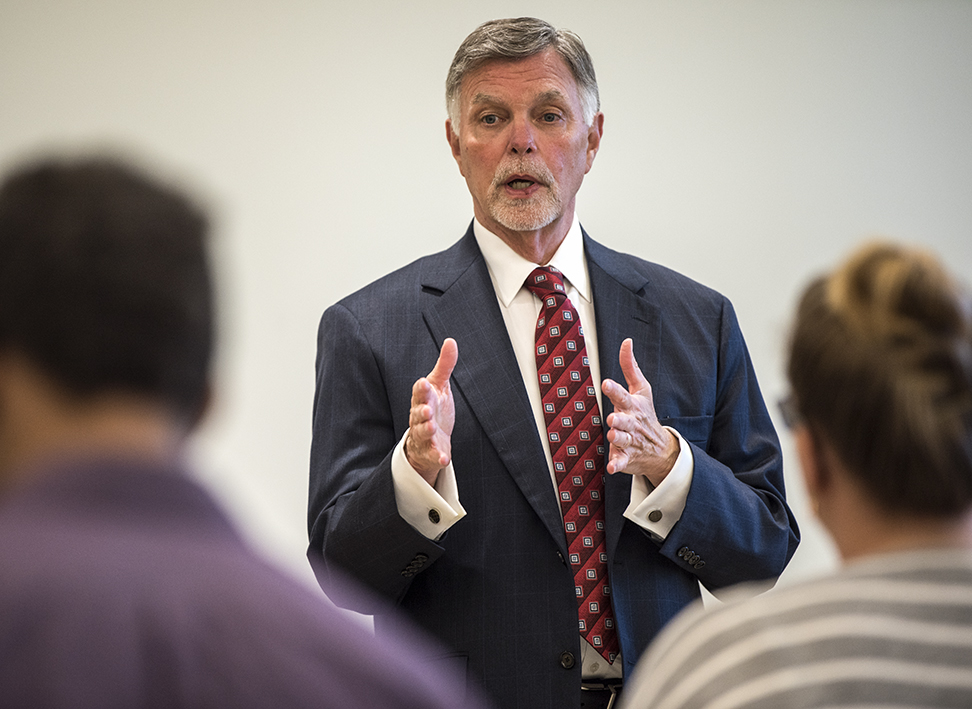
Asked about increasing campus revenue, Hynd spoke about grants and fundraising campaigns. During the morning forum, he said he would revitalize SIU’s philanthropy efforts that have a long-term payoff.
“The average $1 million gift occurs after 12 gifts,” he said of donors. “They give $50 when they’re 25, $100 when they’re 30, and so on. It takes a lot of stewardship.”
He said one revenue “lever” a university should not pull too much is raising tuition. Hynd mentioned the SIU Board of Trustees’ decision in February to raise tuition 3.9 percent more than what current students pay, totaling $9,450 a year for tuition, or $37,800 over four years. It was the second time the board raised tuition in a year.
“That’s getting up there,” he said.
Diversity
Brandon Woudenberg, president of the Graduate and Professional Student Council, asked how Hynd would tackle issues of free speech. In his question, Woudenberg mentioned the May 2 protest, in which more than 200 students turned out after a freshman posted a video to Facebook live detailing an encounter with a fraternity member who allegedly directed racist speech toward her. Later, a video posted anonymously to YouTube told white SIUC students to bring their bats to class the following Monday.
Hynd responded by saying the institution under his leadership would respond in a matter of minutes to address the issue. He said informing the community about how the university addresses the problem should be a campus-wide effort.
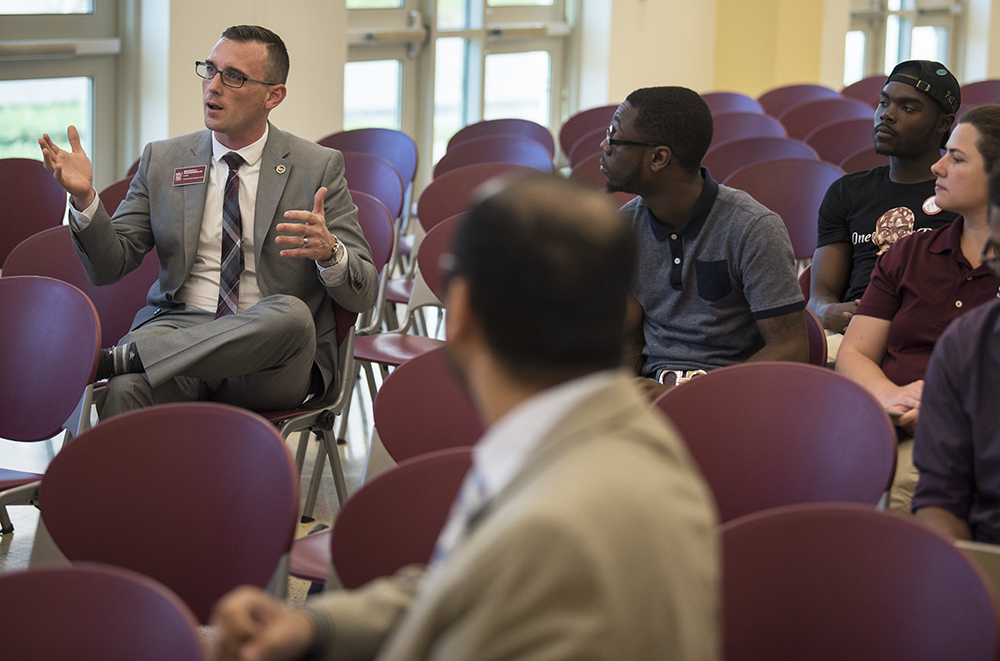
Following up on the candidate’s answer, Brandon Kyles, a junior from Chicago studying journalism who is running for Undergraduate Student Government president, asked how Hynd would respond to marginalized students who don’t feel supported by the university.
Hynd then held his hand in the shape of a phone, lifted it to his head and said, “You call them up, you talk to them.”
For example, he said, a faculty member at Oakland was concerned about a student who was “struggling with sexual identity.” Now the university holds an annual conference to “help students deal with their issues relating to sexual orientation and gender identity,” he said.
In answering another question, Hynd said SIU needs faculty and staff to look like the students they serve. He understands the notion of white privilege, he said, and couldn’t help but notice that the four selected candidates for the chancellor position are white men.
“I have a visceral commitment to academic institutions being representative of our larger world,” he said. “If the institution doesn’t represent the diversity in our larger world, then we’re doing a disservice to our students.”
Lauran Schaefer, a graduate assistant in communication studies, asked Hynd what he would do to deter sexual violence, sexism and racism on campus. In response, the candidate said Oakland holds conferences and “activist workshops” on how to deal with a variety of social issues.
“It really comes from leadership at the top,” he said.
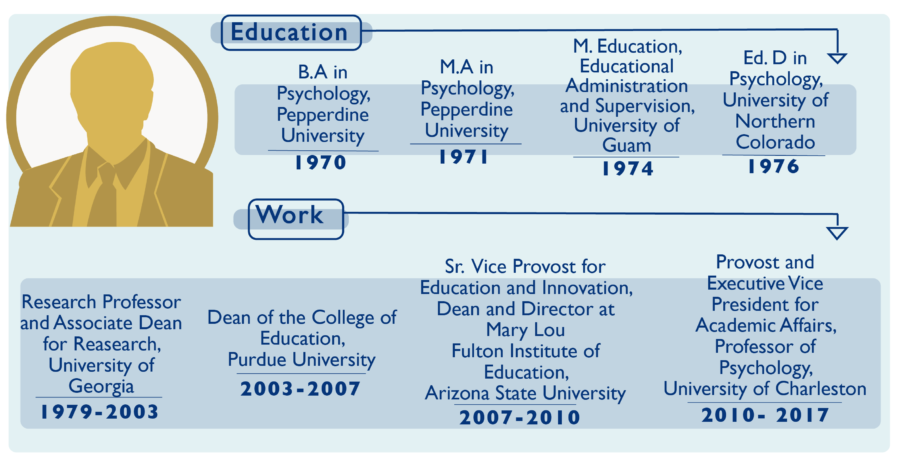
‘I’m here for the duration’
In researching the university, Hynd said he was surprised to learn how many chancellors at SIU have come and gone.
In the past 20 years, the university’s largest campus has had 11 leaders, including one year when Dunn filled the position along with his regular duties as the university president. During those two decades, the longest sitting chancellor was Walter Wendler, who held the post from 2001 to 2006. At least two chancellors served in the position for just a year.
This, Hynd said, has created an inconsistency in dialogue with constituency groups on campus. If chosen to lead, he said he would remain in the chancellor seat for at least five years to carry out a restructuring of the university.
“I’m here for the duration,” he said.
At Oakland, Hynd is a transition president. He filled the role on a three-year contract after the previous president of 20 years abruptly resigned just hours before his wife, the university’s basketball coach, was fired for allegedly mentally and emotionally abusing her players.
Hynd said he should have pushed Oakland for a five-year contract because it “takes two and a half years to really start moving the ship in a different direction.” Hynd’s contract with state-funded school of more than 20,000 students ends Aug. 14, and the university chose not to renew it. He makes $400,000 a year as its president.
The next forum
Colwell will interview on campus at 8:45 a.m. Tuesday in Guyon Auditorium. He will then answer questions at a student-led forum from 5 to 6 p.m. the same day in the Student Services Building room 150/160.
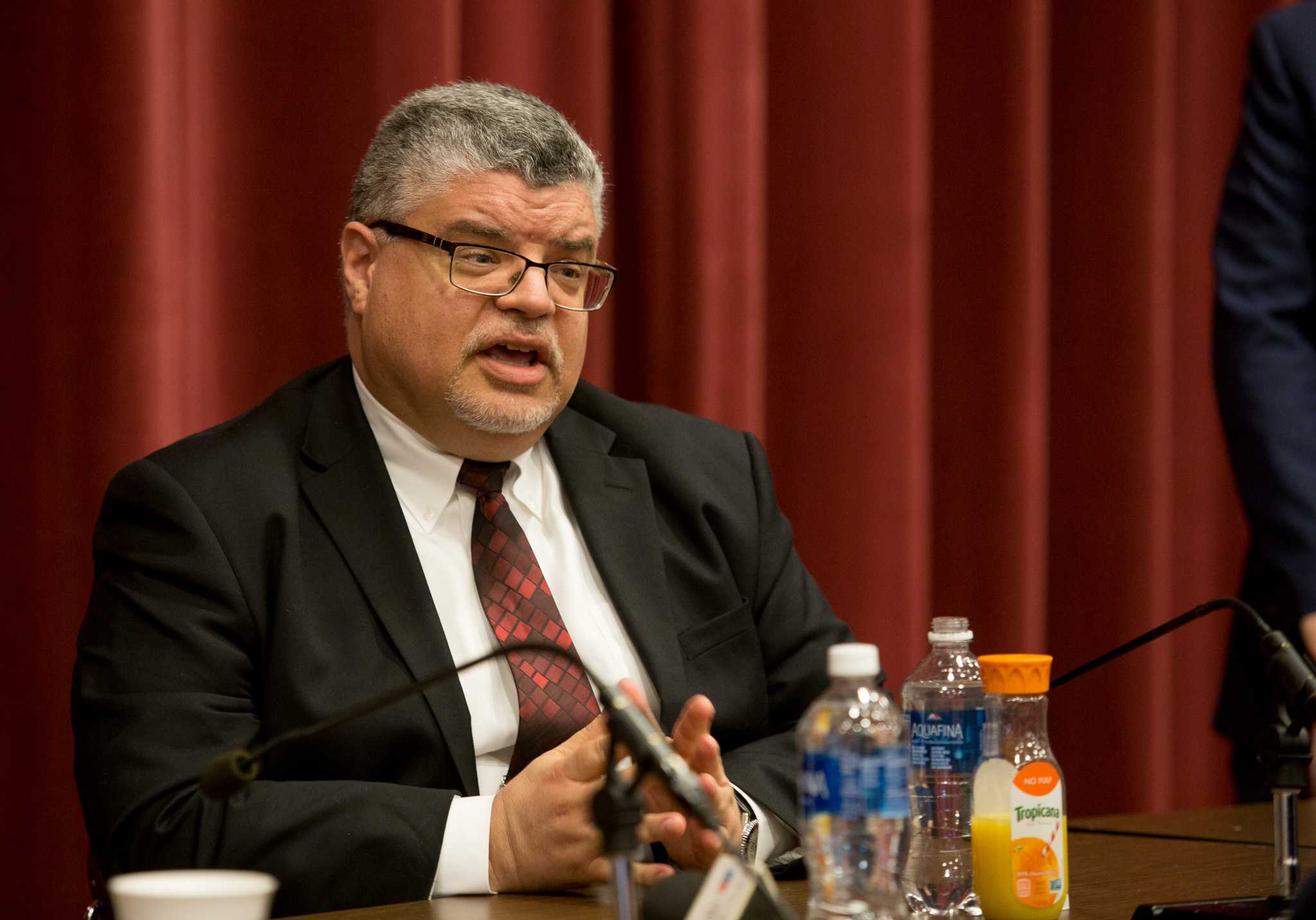
Carl Pinkert, vice president for research and economic development at the University of Alabama, is also vying for the spot. Pinkert earned his master’s degree in animal science from SIU in 1977.
Jeff Elwell, dean of the College of Arts and Sciences at the University of Tennessee at Chattanooga, dropped out of the running last week after being offered the president position at Eastern New Mexico University.
The search for a permanent chancellor comes during a financially difficult time for the state and university.
For nearly two years, Republican Gov. Bruce Rauner and Democrats who control the state Legislature, including House Speaker Michael Madigan, have not been able to pass a state spending plan. In light of the budget impasse, public universities are considering ways to continue operations with the assumption some funding could be cut permanently.
Staff writer Marnie Leonard contributed reporting.
Staff writer Luke Nozicka can be reached at 618-536-3325, [email protected] or on Twitter @lukenozicka.
To stay up to date with all your SIU news, follow the Daily Egyptian on Facebook and Twitter.
Advertisement



